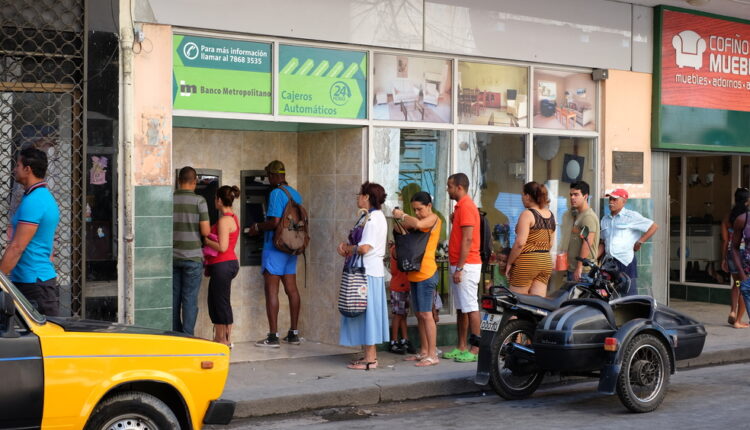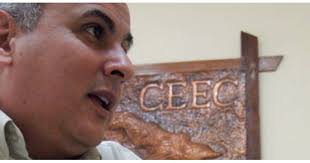
Limiting bank withdrawals: “It is normal,” says Cuban economist (+Español)
The Metropolitan and Popular Savings Banks (BPA) this week set limits on the withdrawal of money and banking operations through ATMs.
In Cuban pesos (CUP), the Metropolitan set a daily limit that cannot exceed 80,000 CUP, and a monthly limit that cannot exceed 120,000. Regarding operations in freely convertible currency, the daily limit is 1,000 and its monthly maximum is 5,000. Those who need to exceed the limits must do so via the bank tellers.
The information specifies that there is no limit for payments for services or purchase of merchandise from legal persons and other forms of non-state management.
The announcement has aroused reactions of all kinds on the social networks. Progreso Weekly/Semanal reached out, via telephone, for an opinion from Progreso contributor and Economics Professor Omar Everleny Pérez. His answer follows:

“Look, they are bank control measures and it is normal for them to happen. In any country in the world there are limits to the withdrawal of money through ATMs. For example, in Europe, depending on the country where you are, you can make one or two extractions a day for 300 or 400 euros, but you must wait two days to extract again.
“Our case (Cuba) is based on the fact that the limits were raised. Since prices have risen so much, putting 120,000 pesos is quite high, but it does not prevent you from being able to get your money. It is not a restrictive measure, rather it is aimed at people who have private businesses. I believe this is the case because extracting 80,000 or 120,000, the ceiling or limit, which is high as I said, but not that high when you take into account existing prices. Obviously it is not a measure aimed at a simple worker. Therefore, it responds to the fact that the tax authorities were losing payments without control.
“My message: I think what they are doing is normal and it happens in many parts of the world.”
*****
Versión en Español:
“Es una medida normal”
Los bancos Metropolitano y Popular de Ahorro (BPA) anunciaron ayer límites a la extracción de dinero y operaciones bancarias mediante cajeros automáticos.
En pesos cubanos (CUP), el Metropolitano establece que el límite diario no puede superar los 80, 000 CUP y mensualmente no puede superar los 120, 000. En cuanto a operaciones en moneda libremente convertible, el límite diario es de 1,000 y su tope mensual es de 5, 000. Aquellos que necesiten superar los límites, deberán hacerlo en las ventanillas del banco.
La información precisa que no hay límite para pagos de servicios o compra de mercancías a personas jurídicas y otras formas de gestión no estatal.
El anuncio ha concitado comentarios de todo tipo en las redes.
Progreso Weekly/Semanal, recabó, vía telefónica, la opinión del Dr en Ciencias Económicas, Omar Everleny Pérez. A continuación, sus precisiones.
“Mira, son medidas de control bancario y es normal que ocurra. En cualquier país del mundo existen límites a la extracción de dinero mediante cajeros automáticos. Por ejemplo, en Europa, según el país donde estes, puedes hacer una o dos extracciones en el día por 300 o 400 euros, pero debes aguardar dos días para volver a extraer.
El caso nuestro (Cuba) estriba en que subieron los límites. Como los precios han subido tanto, poner 120 mil pesos es bastante alto, pero no impide que puedas sacar tu dinero (en caja). No es una medida restrictiva, más bien está dirigida a las personas que tiene negocios privados. Pienso esto porque extraer 80 mil o 120 mil, que es el tope o límite, que es alto como ya te dije, y sin embargo no lo es teniendo en cuenta los precios existentes. Evidentemente no es una medida dirigida a un simple trabajador. Por lo tanto, puede responder a que al fisco se le estaban escapando pagos sin control. Mi mensaje: creo que es una medida normal y sucede en muchas partes del mundo”.

